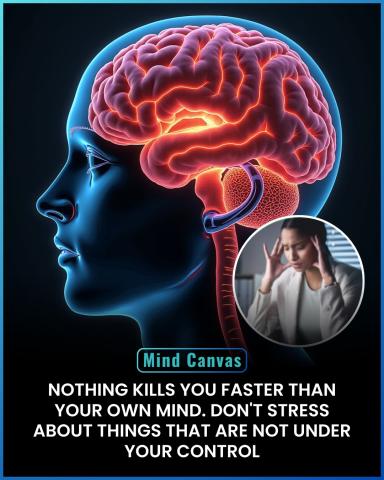
How Overthinking That Tennis Loss Is Literally Killing Your Game. You just walked off the court. The match is over, but in your mind, it’s on an endless, punishing loop. That double fault at break point. The easy volley you sent long. The questionable line call in the second set.
You tell yourself, "Stop thinking about it! It's just a game." But it’s not just in your head. Science reveals that this cycle of overthinking and worry does real, physical damage that sabotages your recovery, your training, and your performance in your next match.
This isn't a sign of weakness. It's a biological response, and understanding it is the first step to breaking the cycle.
The Science of the Post-Match Hangover
The emerging field of psychoneuroimmunology shows us that stress, emotions, and our nervous system are deeply intertwined. When you relentlessly replay a loss, your body can’t tell the difference between that mental replay and a real, physical threat.
Here’s what happens inside a tennis player stuck in a loop of overthinking:
-
Cortoid Flood: Your body pumps out elevated levels of cortisol, the stress hormone. In a short burst during the match, this is helpful—sharpening your focus and reflexes. But when it continues for hours or days after the final point, it becomes toxic. High cortisol impairs your immune system, making you more susceptible to colds and injuries, and it disrupts the deep, restorative sleep your muscles need to recover.
-
The Brain Drain: Persistent stress from overthinking can actually impair memory and cognitive function. It can shrink the hippocampus—the brain's center for learning and memory. This means that by dwelling on your mistakes, you are actively harming your brain's ability to learn from them and adapt for next time. You're not processing the lesson; you're just reliving the pain.
-
The Tension Trap: This mental stress manifests as physical tension. Tight shoulders ruin your service motion. A stiff lower back kills your power on groundstrokes. Poor digestion from stress saps your energy levels. Your body becomes a reflection of your frantic mind, unable to move with the fluidity and freedom that tennis demands.
The On-Court Vicious Cycle
This biological response creates a devastating feedback loop for an athlete:
Overthink the Loss → Elevated Stress & Cortisol → Poor Sleep & Recovery → Tight, Fatigued Body → Underperform in Practice → Lose Confidence → Overthink Even More...
You see? It’s not just "a bad mood." It's a physical state that sets you up for another failure.
How to Break the Cycle and Reclaim Your Game
The good news is that just as your mind can influence your biology for the worse, you can use it to influence your biology for the better. Here’s how to relax and stop overthinking after a loss:
1. The 10-Minute Debrief (Then Draw the Line):
Right after the match, give yourself a strict, 10-minute window to analyze it. Write down three tactical things you did well and three to improve. This channels your analytical mind productively. Once the time is up, the analysis is over. Any further thought is not analysis; it’s rumination. Close the notebook literally and mentally.
2. Engage Your Body to Quiet Your Mind:
You can’t think your way out of an overthinking spiral. You have to act your way out. Engage in active recovery:
-
Light Exercise: A 20-minute bike ride, a slow jog, or yoga. This helps metabolize the excess cortisol and signals to your nervous system that the "threat" has passed.
-
Box Breathing: Inhale for 4 counts, hold for 4, exhale for 4, hold for 4. Repeat 5-10 times. This is a powerful tool to activate your parasympathetic nervous system (the "rest and digest" mode) and pull you out of fight-or-flight mode. Do this before sleep if thoughts are racing.
3. Redefine "The Loss":
Your identity is not your win-loss record. Separate your performance from your worth. Was it a loss, or was it data collection? Did you lose, or did you learn what you need to work on? This shift in perspective turns a threat into a challenge, which is far less stressful for the brain and body.
4. The Physical Reset:
Prioritize what your body needs to chemically reset.
-
Hydrate: Drink water to flush out stress hormones.
-
Fuel Smart: Eat a balanced meal with protein and carbs to replenish energy stores and aid recovery.
-
Sleep Ritual: Protect your sleep at all costs. This is when your body does its most important repair work, both physically and mentally.
The Final Shot
Overthinking a tennis match isn't a trivial habit. It's a physical state of stress that damages your body, clouds your brain, and guarantees you’ll bring the baggage of your last match onto the court for the next one.
Your goal isn’t to never think about a loss—it’s to learn from it and then let your body forget it. By managing your mind, you're not just protecting your mental peace; you're safeguarding your physical ability to play the game you love, for longer and at a higher level.
Your nervous system is your most important piece of athletic equipment. Take care of it.
What’s your go-to method for shaking off a tough loss? Share in the comments below!
